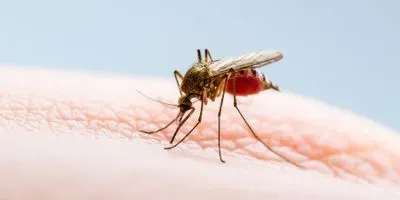Climate change will make outbreaks of West Nile virus more likely in the UK within the next 20-30 years, scientists say.
West Nile virus is spread by mosquitoes and has no vaccine. Most people have no symptoms, but it can cause serious neurological disease.
Scientists from the UK Centre for Ecology & Hydrology (UKCEH), Biomathematics and Statistics Scotland (BioSS), and the University of Glasgow developed a new model to determine the risk of a West Nile virus outbreak in the UK.
They found the risk is low for the next two to three decades, but will increase as temperatures rise.
"Knowing if or when a new disease will affect us is vitally important," said Dr. Steven White, a theoretical ecologist at UKCEH. "West Nile virus is currently absent in the UK, but we do harbor the Culex pipiens mosquito, which can transmit the disease and potentially lead to spill-over into humans.
West Nile virus is now endemic in Italy and there have been outbreaks in Germany, so it is moving into more temperate climates. Our model shows that the risk will steadily increase and that future outbreaks are plausible in the UK."
The team's mathematical model looked at the effects of temperature on the biological processes affecting the Culex pipiens mosquito population in the UK. They were able to capture how these seasonal changes might interact with faster replication of the virus under higher temperatures to drive outbreaks.
"Our model shows the predicted risk of an outbreak increases substantially if the biting season goes on longer, or if new viral strains are introduced that replicate at a higher rate than the ones already studied," said Dr. David Ewing from BioSS, who was a UKCEH PhD student when most of the research was carried out. "Most other approaches are simplified, but we've built in complex biological relationships. This model could be adapted to look at other viruses and diseases, or other mosquito or insect species."
Ewing says the study shouldn't be cause for alarm, but to help the UK prepare:
"While there's relatively little immediate danger, we can take steps to prepare for future outbreaks. This could be as simple as ensuring doctors are aware of the symptoms, testing, and who's most at risk of becoming seriously ill."
- This press release was originally published on the UKCEH website. It has been edited for style











